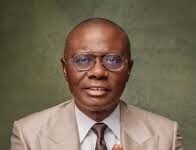Managing Director and Chief Executive Officer of the Rural Electrification Agency, Abba Aliyu, says the agency has already provided electricity access to about eight million Nigerians under the Nigeria Electrification Project, with millions more set to benefit in the coming years.
Out of the 90 million people said to be without electricity supply, Aliyu said eight million had been removed, as they now have access to a stable power supply.
This, he said, was made possible by the efforts of the Federal Government to close the energy deficit gap.
In an interview with our correspondent, Aliyu declared that the REA had not only met its targets but exceeded them.
According to him, the government is making efforts to ensure 17.5 million Nigerians are out of energy poverty in the next three years.
“There are reports that many Nigerians don’t have access to electricity. But under the Nigeria Electrification Project, we have provided electricity to eight million Nigerians. We also have a programme that is targeting 17.5 million people. So, in three years 17.5 million people will also be out of darkness,” Aliyu assured.
Nigeria has struggled with poor power supply for years. There are reports that about 90 million people, especially those in rural communities, have no access to electricity.
The Minister of Power, Adebayo Adelabu, said the government was trying to increase power generation, revealing that efforts were in top gear to provide electricity to many Nigerians through different sources.
Aliyu maintained that the agency is building mini-grids in various communities, especially in areas far from the national grid, disclosing that eight universities have been electrified with solar grids.
The MD also noted that the agency planned to deploy 42 interconnected mini-grids, six of which have been completed.
“We are currently working on deploying 42 interconnected mini-grids, and six have already been completed in Osun, Plateau, Cross River, and Niger State,” he explained.
Aliyu explained that the agency was implementing the projects under the National Public Sector Solarisation Initiative, with agreements already signed to power several universities, including the University of Lagos, University of Benin, University of Ibadan, Obafemi Awolowo University, and University of Nigeria Nsukka, among others.
The REA boss said the approach was private-sector driven, with capital grants used to incentivise operators.
“We are moving away from the traditional concept of government issuing contracts. What we are doing is incentivising the private sector to deploy infrastructure. This ensures sustainability because they have their own money at stake,” he stated.
![]()










